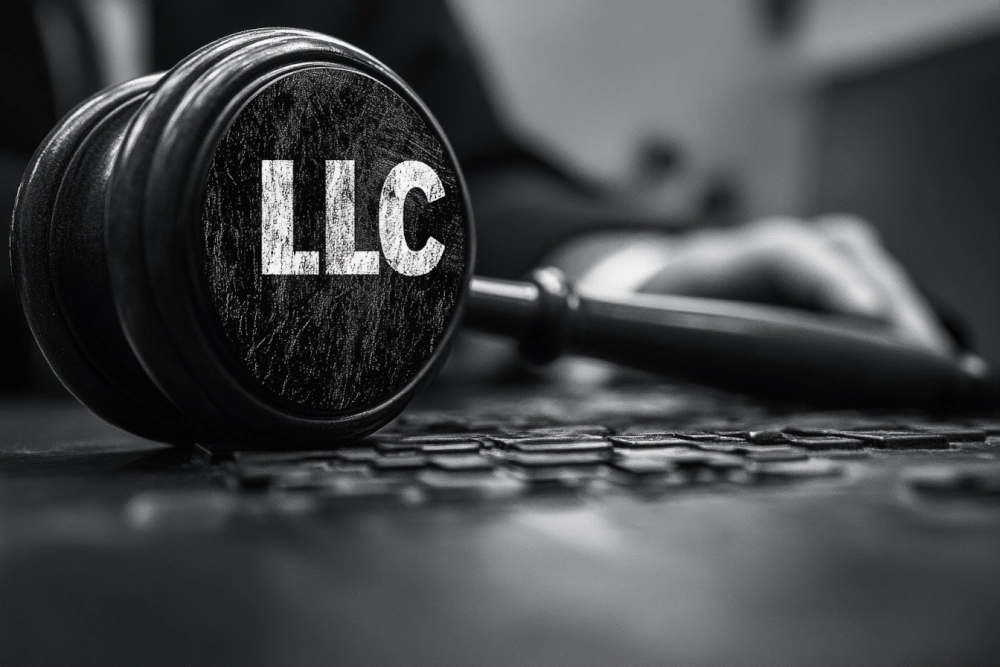Forming an LLC in the same state where your property sits simply because it’s convenient is like bringing a butter knife to a sword fight, a risky half measure that could have dire results. You may end up putting your name, address and signature on a public record that points straight at your assets. When an LLC holds real‑estate, the state you pick determines how anonymous you remain, how well your assets are protected, and whether courts treat the LLC as a genuine shield. This isn’t a tax debate; it’s a privacy battle.
What Matters Most for a Real‑Estate LLC?
- Anonymity – Can you keep your name off public filings?
- Asset protection – Can a plaintiff reach you personally?
- Legal separation – Will courts respect the LLC as a real barrier?
- Low maintenance – Are fees and disclosures reasonable?
Most jurisdictions fall short on at least two of these criteria.
Top Three States for Property LLCs
1. Wyoming – The Gold Standard of Ghost Ownership
- No owner names listed publicly as they do not require LLC members and managers to be named
- Nominee managers permitted
- $100 filing fee, then a $60 annual fee
- Strongest corporate veil in the United States
How it works – You or (even better) your trust creates a Wyoming LLC, which then purchases or holds title to the out‑of‑state property. Public records show only the property owner as being “Blackacre Holdings LLC, organized in WY.” There is no member registry, no public listing, and no easy way to trace the true owners.
Best for – Privacy‑focused individuals, landlords, and out‑of‑state investors.
Source: Wyoming Secretary of State
2. New Mexico – Pure Anonymity, No Strings Attached
- No member or manager disclosure required
- No annual report filing
- $50 formation fee
- Relatively obscure, therefore less targeted
How it works – A New Mexico LLC holds the property directly. Because the state does not maintain a public member database, the LLC is effectively a ghost by default… convenient and yet not spooky.
Best for – Silent holding companies, inherited real‑estate, and trust‑owned LLCs.
Source: New Mexico Corporations Division – FAQs
3. Delaware – When You Need Legal Firepower
- Nominee services available
- Strong corporate veil, widely respected by banks and lawyers
- Well‑developed case law for complex disputes
- Downsides – Annual franchise tax, mandatory registered‑agent filing, higher long‑term cost.
Best for – Institutional investors, high‑risk properties, and multi‑member LLCs that require sophisticated legal backing.
Source: Delaware Division of Corporations – Entity Services
States to Avoid
| State | Why It Hurts Privacy |
|---|---|
| California | $800 Annual Franchise Tax, full member disclosure, aggressive audits of LLCs |
| Florida | Required “Articles of Organization” are publicly available and include information about company owners, managers, and officers. The state may also have weaker veil protection |
| Texas | Mandatory manager/member disclosure, filing annual Franchise Tax Report and Public Information Report |
The Foreign‑LLC Question
Often you will need to register your out‑of‑state LLC as a foreign entity where the property resides. That registration appears in the secondary state’s registry, but it does not reveal your personal name on deeds or internal documents. In many cases, if the LLC merely holds property and conducts no business, you may not need to register at all. This gray area warrants careful/professional structuring!
Pro Tips for Maximum Protection
- Use a trust (named something unrelated to you) as the sole LLC member.
- Form the LLC through a privacy‑focused registered‑agent service or law firm.
- Employ a nominee manager if the state requires a manager’s name.
- Open a separate bank account using an EIN, not your SSN.
- Never list your home address on LLC paperwork; use a virtual office or mail‑forwarding service.
Final Verdict: Follow the Paper Trail to Its End
The state you choose for your LLC matters far more than any single element of your overall estate plan. Wyoming delivers ironclad privacy with a proven track record of asset protection. New Mexico offers budget‑friendly ghost ownership. Delaware supplies legal firepower for high‑stakes scenarios. Even though many practitioners still default to Delaware or the home state (likely because those options are familiar) the privacy‑first approach often yields a cleaner, less traceable structure. Think of it as a digital invisibility cloak for your real‑estate holdings… legally sound, technically robust, and far less likely to attract unwanted attention.
Ready to protect your property without exposing your identity? Choose the jurisdiction that ends the paper trail, not the one that starts it.




